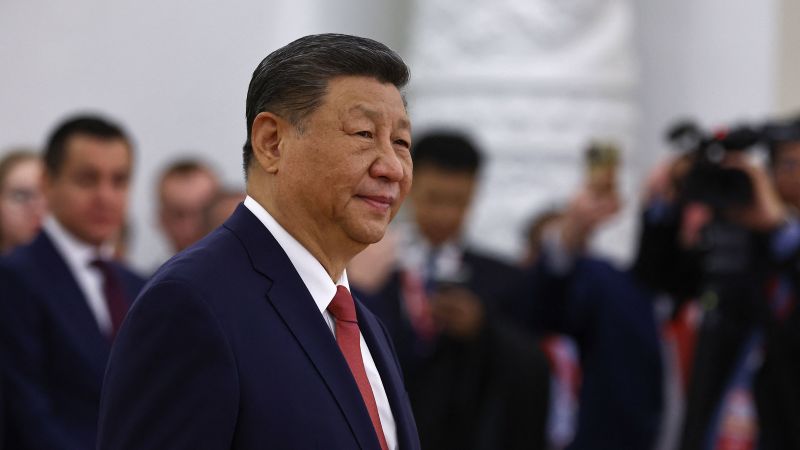
A summit of leaders from the BRICS group of major emerging economies kicks off in Brazil on Sunday, but notably absent from this high-profile gathering is Xi Jinping, the leader of its most powerful member, China. This marks the first time in over a decade that Xi has missed the annual BRICS leaders’ meeting, an event he has previously leveraged to promote China’s vision for a new global order.
Xi’s absence from the two-day summit in Rio de Janeiro occurs at a pivotal moment for BRICS, an acronym representing its founding members: Brazil, Russia, India, China, and South Africa. Since 2024, the group has expanded to include Egypt, the United Arab Emirates, Ethiopia, Indonesia, and Iran. The summit comes as some members face a July 9 deadline to negotiate U.S. tariffs imposed by President Donald Trump, amid global economic uncertainty stemming from his disruptive trade policies.
Impact of Xi’s Absence
Xi’s decision to skip the summit is seen as a missed opportunity for China to position itself as a stable alternative to the U.S., particularly in light of Trump’s “America First” policy and recent military actions involving Iran. Instead, Xi has delegated his responsibilities to Li Qiang, China’s second-in-command, indicating that BRICS remains significant to Beijing’s strategy of counterbalancing Western influence.
Chong Ja Ian, an associate professor at the National University of Singapore, suggests that the pressure on China to assert itself within BRICS may have diminished with Trump’s unpredictable foreign policy moves. “BRICS is part and parcel of Beijing’s effort to ensure it isn’t hemmed in by U.S. allies,” he noted, adding that Xi might prioritize domestic economic challenges over international engagements at this time.
BRICS Attendance and Dynamics
Xi is not the only notable absentee. Russian President Vladimir Putin will also participate remotely, as Brazil, like South Africa, is obligated to arrest him under an International Criminal Court warrant alleging war crimes in Ukraine. This scenario presents an opportunity for Indian Prime Minister Narendra Modi to take center stage during his visit to Brazil for the summit and a state visit.
South African President Cyril Ramaphosa is expected to attend, while Indonesia’s Prabowo Subianto is anticipated to be present following his country’s recent inclusion in BRICS. The participation of new members and potential aspirants like Saudi Arabia remains uncertain, adding to the complexity of the summit’s dynamics.
China’s Strategic Calculations
Xi’s absence might be softened by his recent diplomatic engagements with Brazil’s President Luiz Inácio Lula da Silva, including a visit to Brazil for the G20 summit and a state visit in November. These interactions, coupled with low expectations for significant breakthroughs at this year’s summit, likely influenced Xi’s decision to prioritize domestic issues.
Brian Wong, an assistant professor at the University of Hong Kong, suggests that Li Qiang will focus on enhancing energy ties with BRICS’ major oil-exporting members and promoting China’s digital currency for trade within the group. Wong emphasizes that Xi’s absence should not be seen as a snub to BRICS, noting that “there is much in BRICS+ that resonates with Xi’s foreign policy worldview.”
Challenges and Opportunities for BRICS
Since its inception in 2009, BRICS has positioned itself as the Global South’s counterpart to the G7, advocating for a multipolar world where power is more evenly distributed. However, the group’s diverse political and economic systems and recent expansion have sparked criticism about its effectiveness.
Efforts to present a unified voice often encounter internal disagreements. A recent statement expressing concern over military strikes against Iran, a BRICS member, failed to specifically name the U.S. or Israel, highlighting the group’s diplomatic challenges.
Nonetheless, the U.S. will be closely monitoring discussions on de-dollarization, a topic that unites BRICS members seeking to reduce reliance on the dollar. This move is particularly appealing to heavily sanctioned countries like Russia and Iran. While a “BRICS currency” remains unlikely, the group’s push for alternative payment options continues to draw attention.
As the summit unfolds in Rio, observers will be keen to see how assertively BRICS leaders advocate for national currencies in a forum where China plays a leading role, yet U.S. economic influence remains significant.







